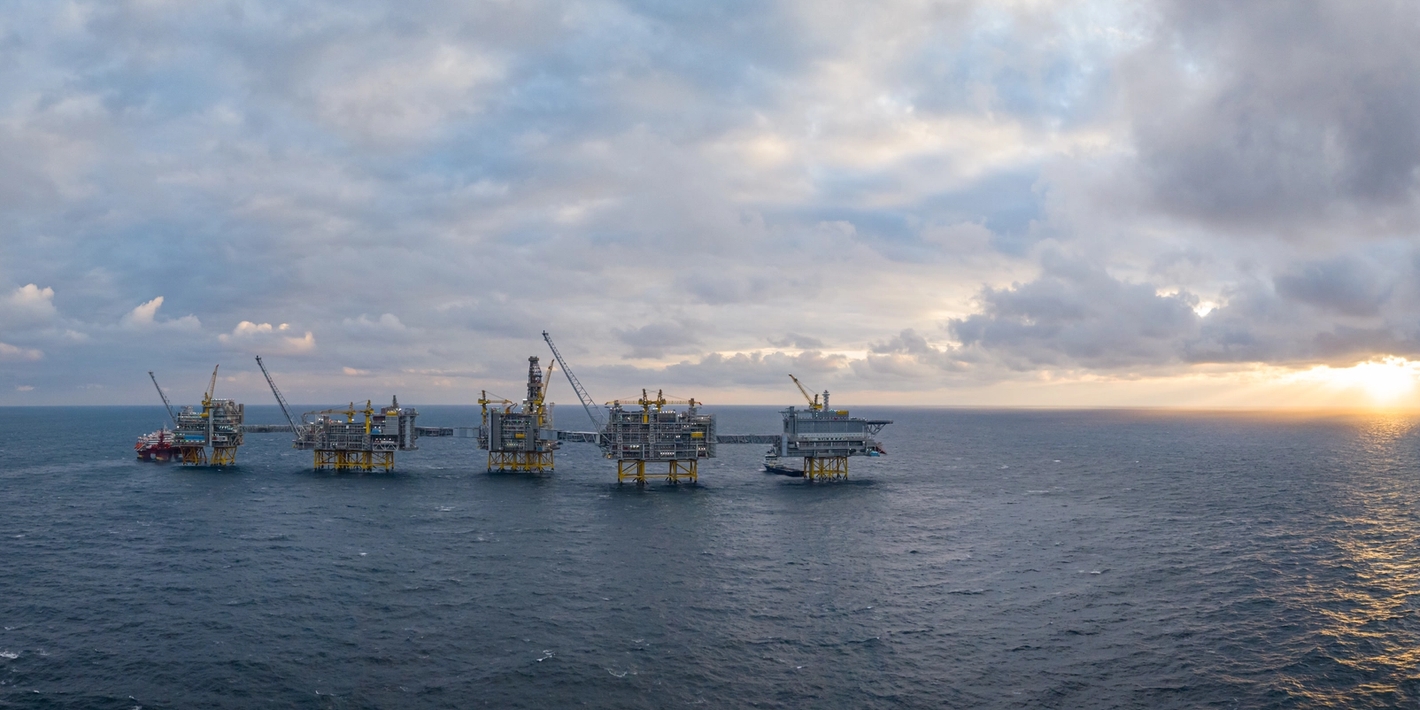Johan Sverdrup Phase 2 on stream

At 11:15 on 15 December production started from Johan Sverdrup Phase 2.
When the Johan Sverdrup field reaches plateau production, every third Norwegian oil barrel will come from this giant field, which for decades will be essential to ensuring high and stable energy deliveries from Norway.

“The entire Johan Sverdrup field is now on stream. This is a red-letter day for us and our partners, Aker BP, Petoro and TotalEnergies, but also for Norway and Europe. Johan Sverdrup accounts for large and important energy deliveries, and in the current market situation, most of the volumes will go to Europe," says Geir Tungesvik, Equinor's executive vice president for Projects, Drilling & Procurement.
At plateau, the Johan Sverdrup field will produce 720,000 barrels of oil daily, aiming to rise to 755,000 barrels per day. Johan Sverdrup alone can thus meet 6-7 percent of the daily oil demand in Europe. Recoverable volumes in the Johan Sverdrup field total 2.7 billion barrels of oil equivalent.
The Johan Sverdrup Phase 2 project consists of a new platform, five new subsea systems, 28 new wells, a new module for the existing riser platform, and facilities to send power from shore to the Utsira High area. The Johan Sverdrup Phase 2 project was delivered as planned, on time and cost, despite the Covid-19 pandemic.
“It has been challenging, and I would like to send a big thank you to everyone who has helped bring the project safely to the finish line, both partners, our own employees and, not least, the suppliers,” says Tungesvik.
More than 90 percent of deliveries to Johan Sverdrup Phase 2 have a Norwegian billing address, and many of the suppliers were also involved in the first part of the development of the highly profitable project. The full-field development of Johan Sverdrup has a break-even price of less than USD 15 per barrel.

The Johan Sverdrup field receives power from shore through cables from Haugsneset north of Stavanger. The first cable currently supplies the first four platforms on the Johan Sverdrup field with electricity. The new cable supplies the fifth platform and the rest of the Utsire High installations.
“In combination, this reduces CO2 emissions by a total of 1.2 million tonnes per year, equivalent to 2,5 percent of Norway’s annual emissions. Electrification is an important measure to further developing the Norwegian continental shelf (NCS) towards the goal of net zero greenhouse gas emissions by 2050," says Marianne M. Bjelland, vice president, exploration and production, the Johan Sverdrup and Martin Linge areas.
Johan Sverdrup has been in stable production for more than three years. The field is estimated to generate more than 3,400 person-years of work each year, and production from the field has already contributed substantially to the Norwegian welfare state.82 percent of the revenues from the Johan Sverdrup field goes to the state through taxes and direct ownership interest, estimated at a total of about NOK 900 billion over the field life.
“I am proud that we have now put the entire Johan Sverdrup field on stream in a safe and secure manner. We will deliver stable energy volumes for several decades, while contributing to Norwegian value creation for a long time to come," says Bjelland.
Accept cookies
Want the full picture? We’d love to share this content with you, but first you must accept marketing cookies by enabling them in our cookie settings.
Latest news

Ex. dividend third quarter 2025
The shares in Equinor ASA will be traded on the Oslo Stock Exchange (OSE) and New York Stock Exchange (NYSE) exclusive the third quarter 2025 cash dividend as detailed below.

Buy-back of shares to share programmes for employees
Equinor ASA has on 4 February 2026 engaged a third party to conduct repurchases of the company's shares to be used in the share-based incentive plans for employees and management for the period from 13 February 2026 until 15 January 2027.

Notifiable trading
A primary insider in Equinor ASA has sold shares in Equinor ASA: